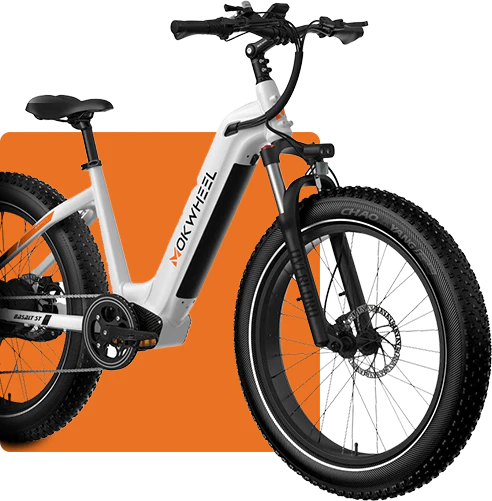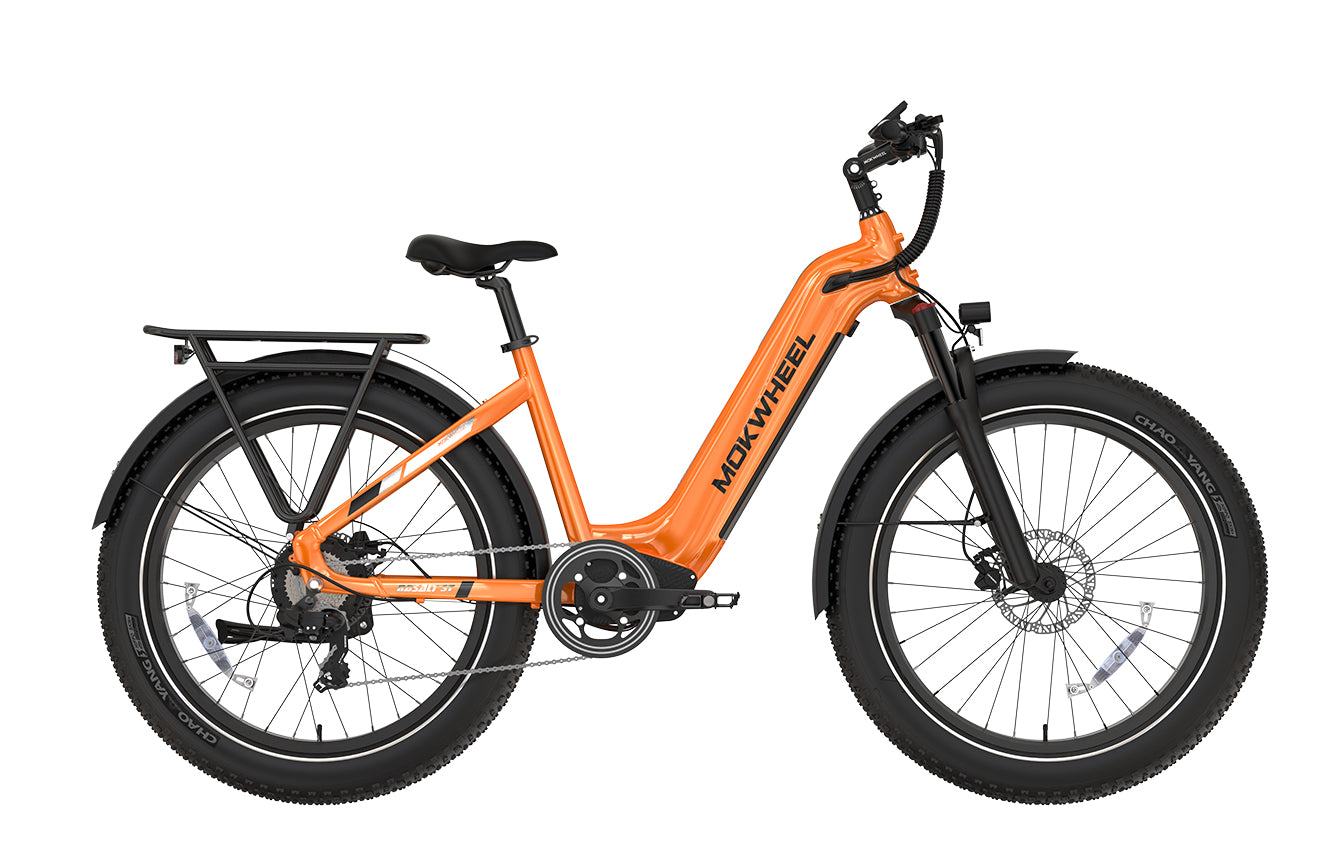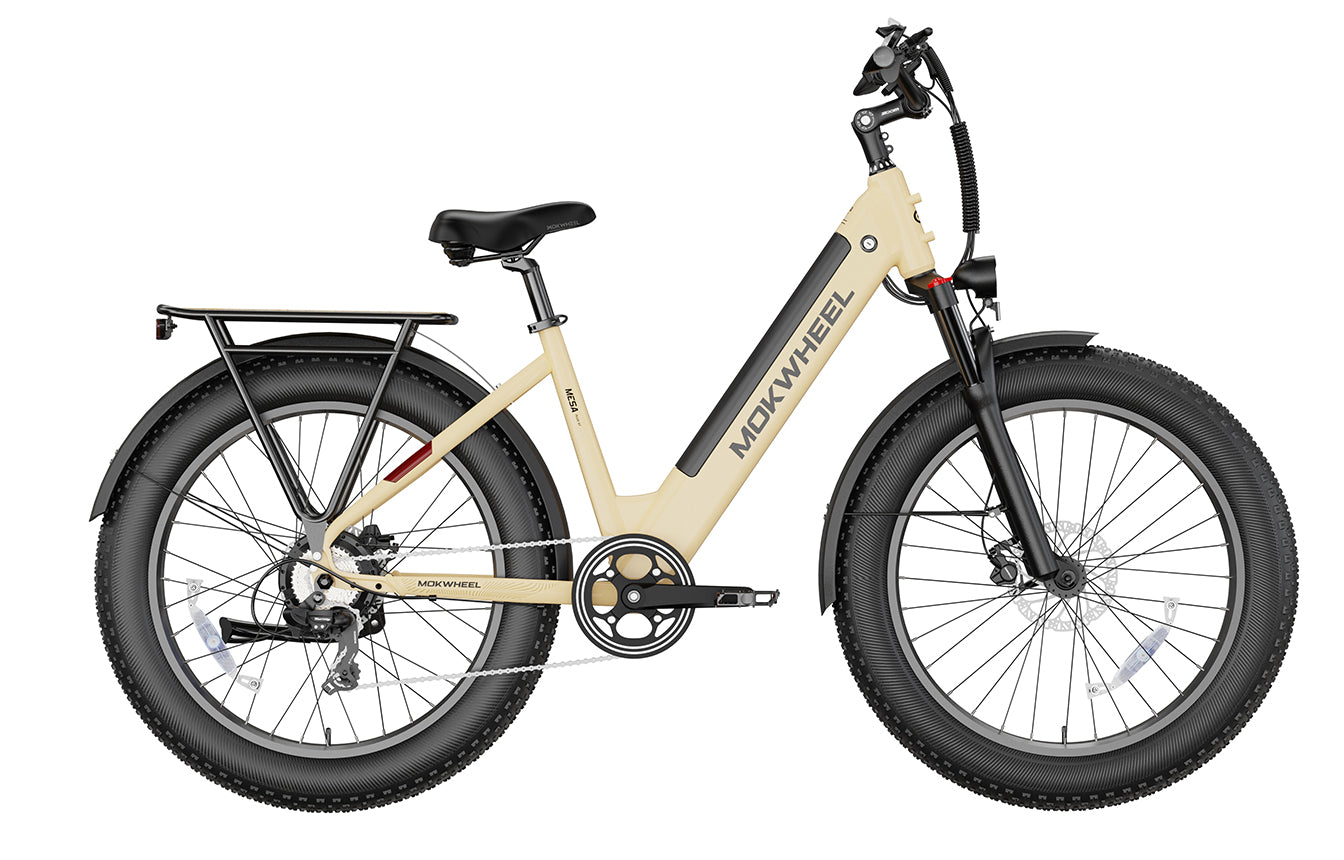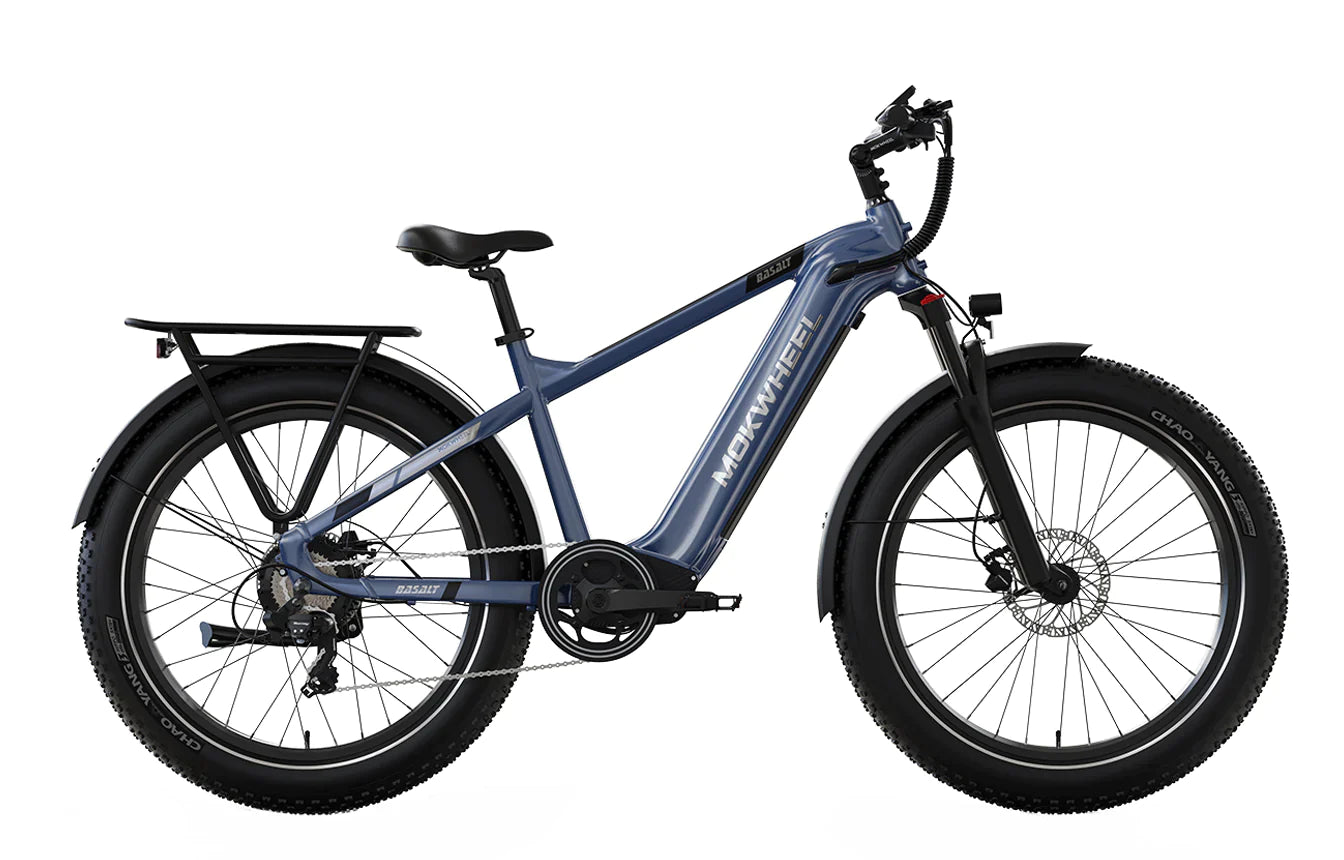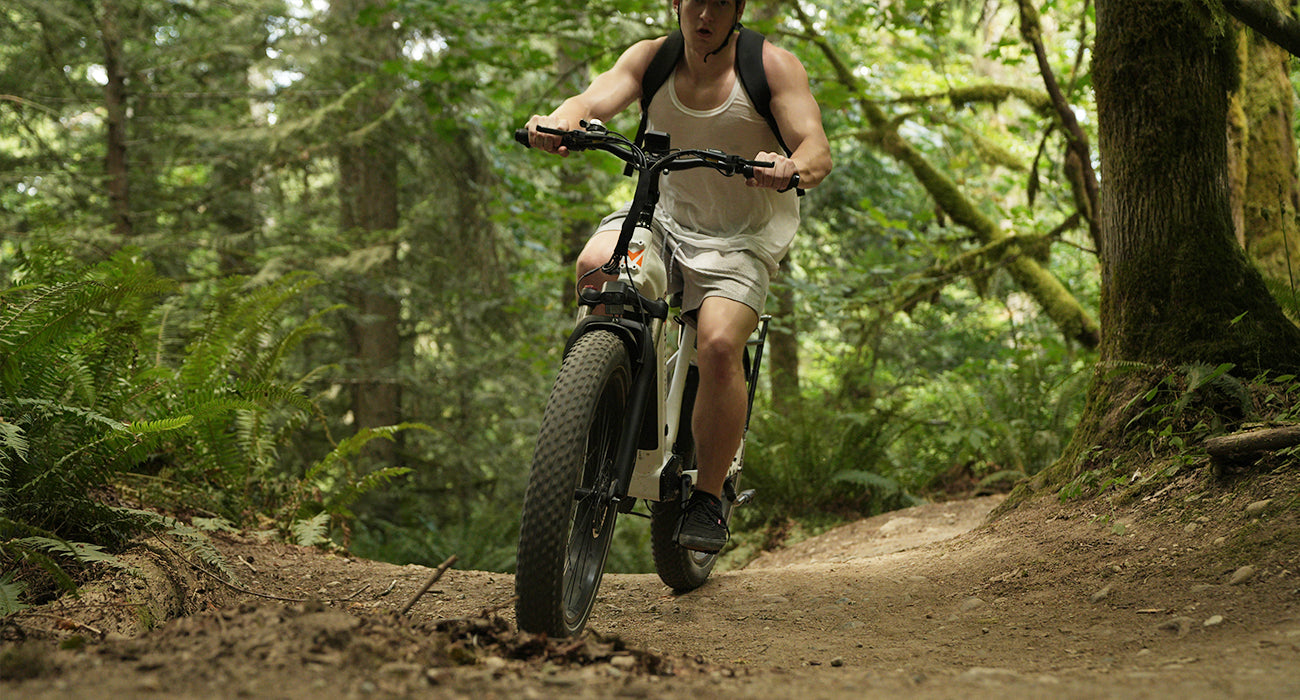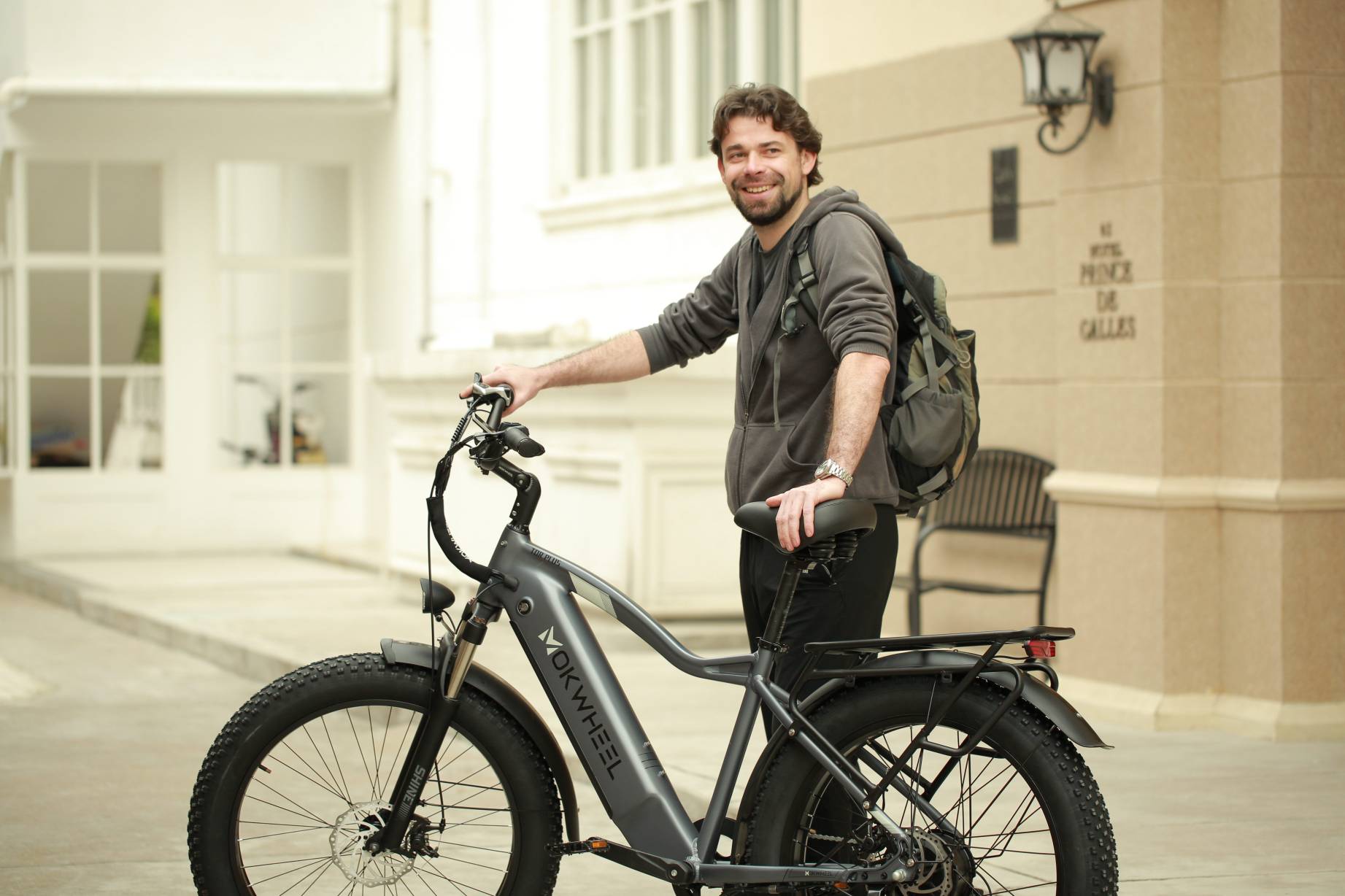Electric Bikes vs. Traditional Bikes: Which Is the Right Ride for You?
The appeal of bikes lies in their easy maneuverability, eco-friendliness, and health benefits, which have led many urban commuters to make the switch. Modern bikes offer convenient mobility for short distances while promoting long-term health.
Bikes can be broadly categorized into two types: traditional bikes and electric bikes. Each option has its own set of advantages and disadvantages. If you're unsure about which type to choose, you've come to the right place. In the following sections, we will have a traditional bikes vs electric bikes face-off, examining their respective pros and cons, costs, and helping you decide which one suits your needs.

What Are Electric Bikes?
Electric bikes, often referred to as e-bikes, represent an innovation in the world of cycling. They are equipped with an electric motor that assists riders during their travels. E-bikes are available in various categories, offering different speeds and throttle options. Extensive planning and development have gone into making e-bikes aerodynamic, comfortable, and stable, providing additional benefits to their users.
What Are Traditional Bikes?
On the other hand, traditional bikes have maintained their classic style and design over the years. They are typically lighter than electric bikes and rely on manual pedaling. While traditional bikes used to lack innovation, since 2020, companies have introduced new features, such as central LED lights, to generate increased interest and demand.
Advantages of Electric Bikes
Electric Motor Assistance: The most notable feature that sets e-bikes apart from traditional bikes is their electric motor assistance. E-bikes offer motor assistance to riders, making pedaling less strenuous.
Some e-bikes even have a throttle-only mode that allows you to reach speeds of up to 20 mph solely on motor power. This electric motor assistance enables you to travel longer distances without exhausting your strength.
Off-Road Accessibility: E-bikes come in various forms, including fat-tire electric bikes. These electric bikes are designed for longer journeys and can carry additional loads.
The fat tires excel in off-road conditions, allowing you to navigate through grass, dirt, and uneven terrain. Mokwheel has taken it a step further by introducing power station e-bikes, which can even power your appliances during off-road adventures, adding excitement to your excursions.
Added Functionality: Electric bikes have transformed traditional bikes, with e-bike brands pushing the boundaries to introduce exciting features. One remarkable addition is the torque sensor, which measures the rider's pedaling effort and offers optimized assistance. This feature allows riders to enjoy a comfortable ride without exerting extra effort.
Additionally, e-bikes often come equipped with a central LED display that lets you monitor your trip performance on the go. These central LEDs can also be connected to your mobile phone, enabling you to track your daily performance easily.
High Versatility: E-bikes cater to a wide range of riders. Companies offer both step-through and step-over versions to accommodate different heights and ages.
The electric motor assistance not only allows urban commuters to travel to work stylishly without feeling fatigued but also empowers RVers to embark on long excursions. Thanks to the motor assistance, torque sensor, and enhanced comfort, these bikes provide a versatile riding experience.
Disadvantages of Electric Bikes
Electric bikes offer a comprehensive set of advantages, providing riders with a comfortable riding experience and innovative features at their disposal. However, they do have certain disadvantages to consider.
- Electric bikes can have costly maintenance if the motor malfunctions or the battery pack requires replacement.
- Low-power backup may limit your riding miles until the battery is charged again.
- Riders may have to wait for the battery to recharge, which may take several hours.
Advantages of Traditional Bikes
Exercise and Fitness: While electric bikes also require active pedaling, traditional bikes demand significantly more physical effort. This makes traditional bikes more suitable for those looking to burn higher calories. Reports suggest that, on average, an hour of riding a traditional bike can burn up to 225 calories, whereas it's around 125 calories for an electric bike.
Simplicity: Traditional bikes are known for their simplicity. They lack electrical components and high-end features that may malfunction over time. This simplicity ensures you can enjoy your bike every day without concerns about expensive maintenance.
Lightweight: The absence of electrical components makes traditional bikes considerably lighter than electric bikes. This reduced weight assists riders in maneuvering at high speeds and navigating through races. Moreover, their lightweight enhances portability, making them easy to transport in wagons and trucks.
Lower Costs: Cost is a significant differentiating factor between the two bike types. Traditional bikes have a lower upfront cost and generally incur lower maintenance expenses compared to electric bikes. Consequently, they are an excellent choice for fitness enthusiasts seeking a more budget-friendly alternative.
Disadvantages of Traditional Bikes
Regular bikes offer a comfortable commuting option, and their health benefits should not be underestimated. However, when compared to electric bikes, traditional bikes may fall short in several aspects.
- Urban commuters riding manual bikes to work may experience fatigue.
- Riders may struggle to keep pace with traffic in urban centers without exerting excessive effort.
- Limited functionality and the absence of innovative features can impact the overall riding experience.
- Pedaling on traditional bikes requires higher effort, limiting riders to shorter distances.
- The lack of motor assistance can pose challenges when traversing hills and uneven terrain, potentially requiring riders to dismount and push the bike uphill.
- Traditional bikes may not be suitable for older riders due to the higher strain on the knees while pedaling.
Cost Comparison
Price considerations play a significant role in any purchase decision. However, when comparing traditional bikes to electric bikes, pricing should be secondary, as these bikes offer different dynamics and features.
In the traditional bikes market, you can find entry-level bikes for around $250, mid-level recreational bikes for approximately $650, and entry-level mountain bikes priced as high as $1,200. In contrast, e-bikes generally start at around $1,200 and can go higher based on your specific needs and preferences.
Mokwheel has strategically priced its bikes to cater to a broad audience. Click here to check Mokwheel's latest deals.
Performance Comparison
If we take an objective look at these two types of bikes, electric bikes stand out as winners in terms of performance and usability. Electric bikes offer a sophisticated mode of transportation suitable for commuting to the office, off-road adventures, and everyday rides.
Features like the torque sensor, a comfortable bike seat, and an aerodynamic design contribute to an enhanced riding experience compared to traditional bikes. Mokwheel e-bikes, in particular, provide added comfort thanks to their fork suspension, Shimano gearing, and hydraulic brakes.
Moreover, electric bikes are generally considered a safer alternative to regular bikes. E-bike companies have introduced pedal assistance levels that allow you to ride at an optimal pace.
Additionally, these bikes are equipped with regenerative braking systems that help maintain control over your speed. Bright front, back, and sidelights further enhance safety. Traditional bikes, on the other hand, often lack such safety features, which are offset by their lower cost.
Conclusion: Which Bike Is Better for You?
After our in-depth analysis, it's fair to conclude that electric bikes offer a convenient transportation solution for urban commuters, RVers, regular travelers, and biking enthusiasts. However, if you're seeking intense workouts on a bike, traditional bikes provide a more suitable option.
If you’re exploring electric bikes, explore Mokwheel's e-bike collection. Mokwheel has established itself as an expert in e-bike manufacturing, offering a dynamic range of options to suit all riders. We have e-bikes for all; connect with us to find your perfect match!
